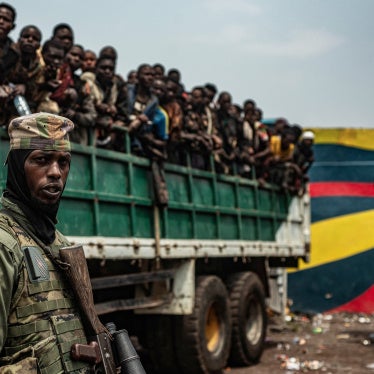Under an arrangement between former Central African Republic (CAR) president François Bozizé and President Jacob Zuma, South Africa deployed more than 200 soldiers in January to train CAR’s army and protect its president from Seleka, a rebel coalition. On March 23, however, in a fierce battle, Seleka overran the SANDF unit, killing 13 of its soldiers.
Seleka entered Bangui, the capital, and the remaining SANDF soldiers were called home. Yet, in spite of the events in March, South Africa should not give up on the central African nation.
Since the fall of Bangui, chaos and disorder have spread throughout CAR on an unprecedented scale. Seleka fighters, a loose coalition of once-competing groups from the north-east, began to attack residents in Bangui and elsewhere.
Residents told Human Rights Watch (HRW) that during Seleka’s infamous assault on the Boy-Rabe neighbourhood in Bangui in April, the Seleka gunned down innocent people, including the elderly and children, who were trying to flee the fighting. In rural areas, villagers, hidden in bushes, spoke about the looting of their homes, the attacks they endured, and their hunger and sickness.
A new Human Rights Watch report, “I Can Still Smell the Dead: The Forgotten Human Rights Crisis in the Central African Republic”, details scores of killings between March and June and confirms the deliberate destruction of more than 1,000 homes in this forgotten country.
I can’t help but wonder what would have happened had the SANDF been able to hold off the Seleka. Perhaps these abuses might not have happened. But we should remember that the Bozizé regime defended by South Africa had committed its own horrific abuses, as Human Rights Watch documented.
We Africans like to talk about African solutions to African problems, but we don’t often talk about what those solutions are.
One element of an African solution might be to not tolerate abuse by an African government or rebel group and to stand in solidarity with its victims, as countless people (African and non-African) did for South Africans during the apartheid era.
Another aspect of an African solution might be to take a principled stand and condemn countries that condone or support abuses.
Human Rights Watch shows in its latest report on CAR how the Seleka appear to draw support from Chadian fighters, even though Chad’s government is also providing peacekeepers to stabilise the region.
CAR clearly needs more principled and co-ordinated support from fellow Africans, particularly as conditions in the country worsen.
From July to September, Human Rights Watch received credible reports of intensified Seleka attacks on civilians throughout the country. The humanitarian situation teeters on the verge of disaster, with growing numbers of internally displaced people and refugees fleeing to neighbouring countries.
The transitional president, the Seleka leader Michel Djotodia, announced he was dissolving the coalition earlier this month, but itremains unclear what will happen with its armed fighters.
Africa’s leadership is essential to provide security, humanitarian assistance, and justice in CAR. On August 1, the regional peacekeeping mission in CAR, known as Micopax, transitioned into an AU-led mission with a mandate to protect civilians.
The AU’s Peace and Security Council is calling for an increase of 2 500 troops, over the 1 000 already on the ground.
These initiatives to increase protection for civilians are a good start, but more needs to be done to stop the violence.
The UN will soon be taking up the questions both of how to strengthen its presence and how to provide much-needed logistical,financial, and technical support to the AU mission. Unfortunately, Rwanda and Togo, the two sub-Saharan African countries on the Security Council, have not exercised their leadership to help strengthen UN support to the AU-led mission.








